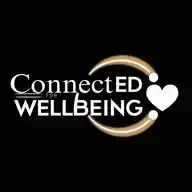
ConnectED For Wellbeing
64 subscribers
About ConnectED For Wellbeing
Democratising knowledge, resources, and opportunities on mental health, social-emotional learning, and overall well-being to support students and teachers within the education space.
Similar Channels
Swipe to see more
Posts

*Social Connection for Children’s Mental Health* 🧠💚 Children grow best when they feel connected to their families, schools and communities. These everyday relationships shape their brain development, support their emotional health and guide their learning and behaviour. When adults build strong, trusting relationships with children, they help them feel safe, valued and understood. Parents, teachers, carers and mentors all play a part in creating a sense of belonging. 📌 Here is what research shows: ▪️Secure relationships build resilience and self-esteem ▪️Positive social ties reduce risks of anxiety and emotional distress ▪️Supportive communities help children grow and feel included 👨👩👧👦 Community matters! Relationships matter! Children matter! Every adult can make a difference by being present, listening carefully and showing up with care. *Explore more:* https://www.allforkids.org/news/blog/social-connection-on-child-development/ © ConnectED For Wellbeing ✨
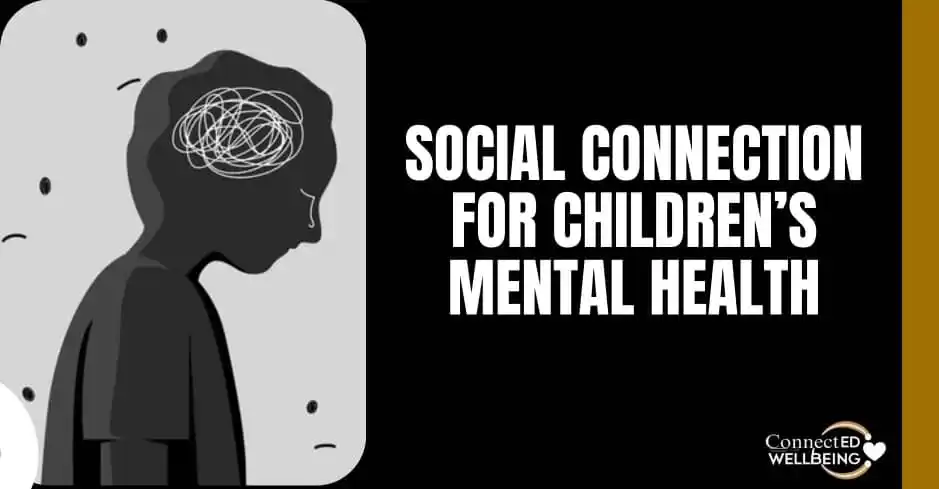

*The Long-Term Effects of Childhood Trauma* Many adults struggle with low self-esteem, anxiety, or depression without realising these challenges often stem from early life experiences. Professionals working with survivors of trauma often observe that even those who seem confident on the outside may feel disconnected, unworthy, or anxious on the inside. One practitioner described this as people becoming "very good actors," hiding their true feelings behind a composed appearance. Children who grow up with neglect or abuse may develop a "false self" – a version of themselves shaped by the need to feel accepted or safe. This false self can carry into adulthood, making it difficult to form genuine relationships or feel a stable sense of self-worth. In many cases, people do not recognise their childhood as traumatic. They may have seen their experiences as normal at the time, making it harder to understand or talk about them later. As a result, many find ways to cope with emotional pain, often through behaviours like substance use or isolation. When people are unable to heal from their own experiences, they may unintentionally pass on patterns of harm. For example, parents who were punished harshly as children may view such behaviour as discipline. Breaking these patterns often requires recognising past harm and having access to supportive care. At ConnectED For Wellbeing, we believe that increasing awareness of how childhood trauma affects adult life is vital for building healthier communities. *Reference* Downey, C. & Crummy, A. (2022). The impact of childhood trauma on children’s wellbeing and adult behaviour. European Journal of Trauma & Dissociation, 6(1), 100237. https://doi.org/10.1016/j.ejtd.2021.100237
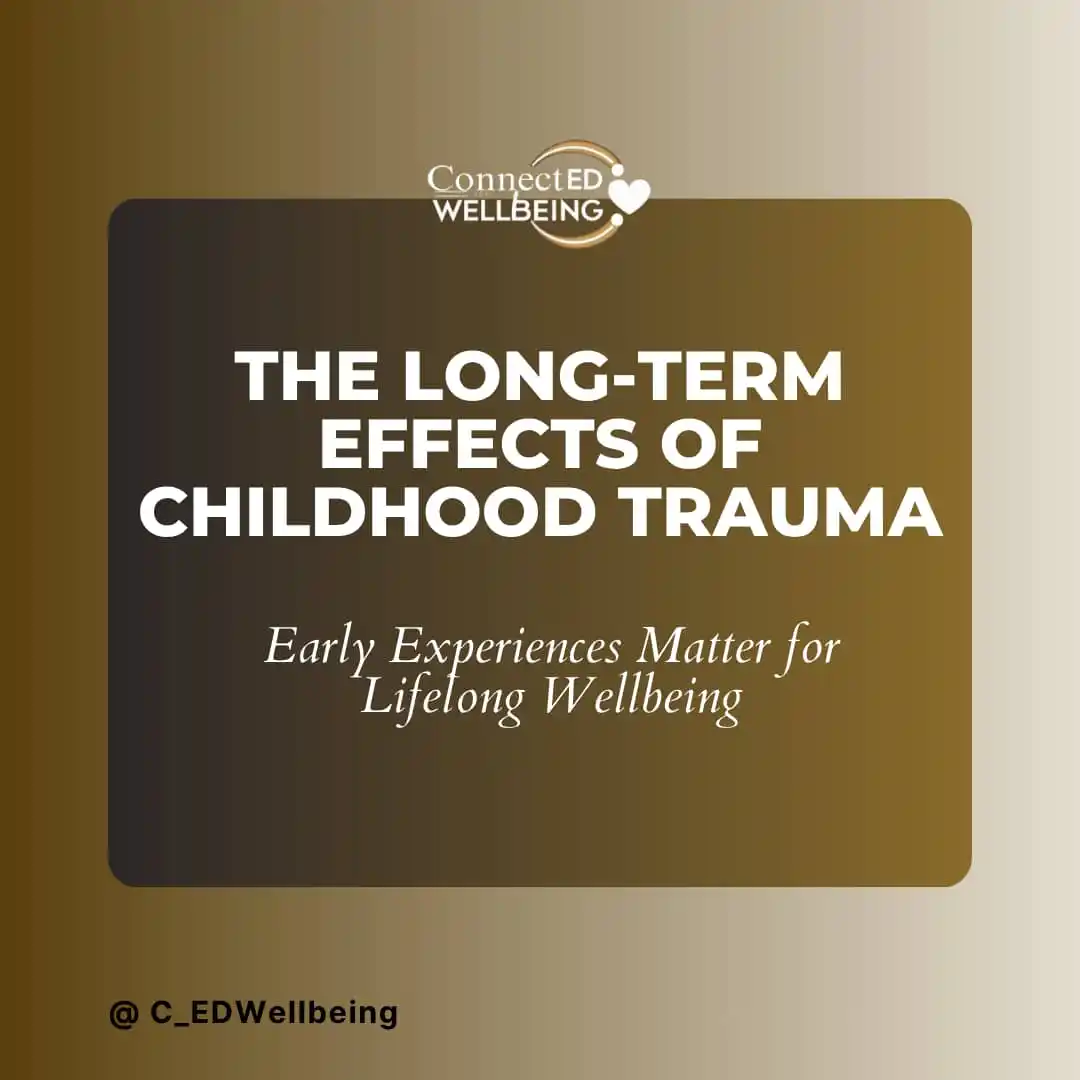

*ConnectED For Wellbeing* exists to provide access to resources, training, and support focused on trauma-sensitive pedagogy and social emotional learning. The overarching goal is to enhance educational stakeholders capacity to create safe and friendly learning environments where every learner and educator thrives. ▪️▪️▪️▪️▪️▪️▪️ *FOLLOW* the ConnectED For Wellbeing on the following platforms and *SHARE* with others. *WhatsApp channel:* https://whatsapp.com/channel/0029VafeDvZFy72F8jw7gD0z *X (Twitter):* https://x.com/C_ED4Wellbeing *Instagram:* https://www.instagram.com/c_ed4wellbeing


Join the celebration and conversation for the *2025 International Day of Play* under the theme: “Better Play, Better Learning.”📚 📅 *Wednesday, 11th June* 🕑 *1:00 PM WAT* This online celebration will spotlight the transformative power of play in children's well-being, learning, and holistic development. From storytelling and creativity to joyful school environments, we’ll explore how play fuels curiosity, confidence, and lifelong skills. 🔗 *Register:* https://unesco-org.zoom.us/meeting/register/CPdKdrg9R0mxqJn1O26L7g#/registration
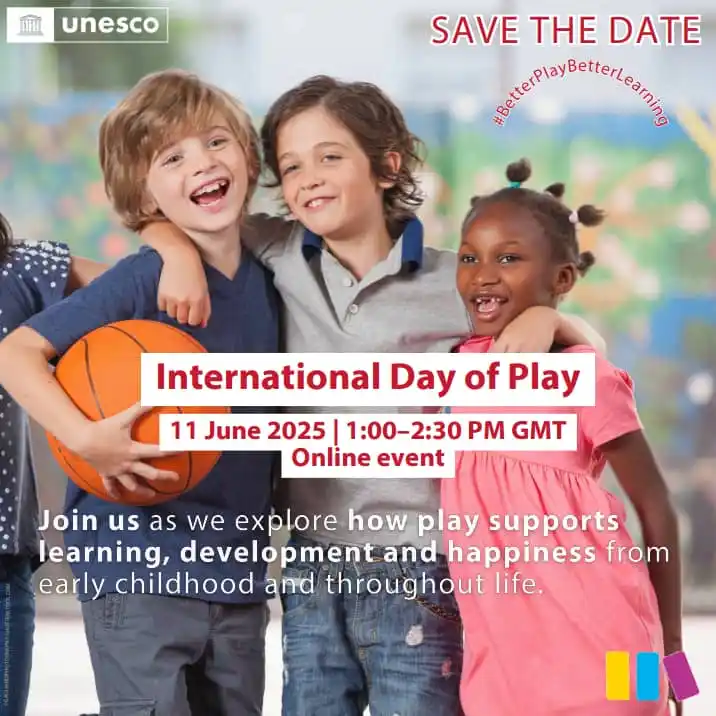

*UNICEF Course: Play Matters: Advocating for a World of Play* 📖 Explore the importance of play through an engaging, free online course created by UNICEF for educators and parents. This course is packed with research, interactive activities, and real-world applications to help you advocate for children's right to play https://agora.unicef.org/course/info.php?id=57868 All participants who have completed the course will receive a certificate from UNICEF.


*The Power of Relationships in Healing Trauma* Trauma can have a profound effect on a child’s emotional, psychological, and physical well-being. Whether caused by abuse, neglect, or family violence, its impact can last into adulthood. However, *positive relationships play a crucial role in healing.* Research shows that the strength of a child’s relationships is a strong predictor of their well-being. Healthy, supportive relationships act as a buffer, helping to reduce the long-term damage caused by trauma. *Children need daily interactions that nurture and support their development, whether at home, school, or in the community.* These interactions offer "daily therapy" that helps children heal and thrive. *Explore more* 🔗 https://www.berrystreet.org.au/news/the-power-of-relationships-for-healing-trauma#:~:text=For%20children%20to%20develop%20and,or%20in%20the%20therapy%20environment.
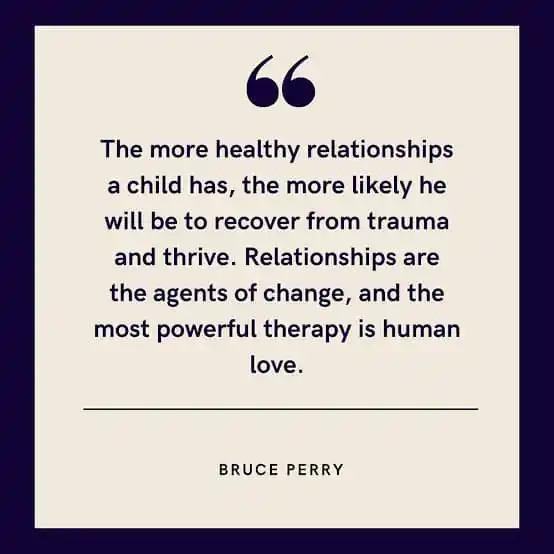

*Building Relationships as a Foundation of Trauma-Informed Practices in Schools* https://youtu.be/Za2ktqwpMYY?si=gov-OQuh3PIJd6eR The video highlights useful strategies for and classroom examples of relationship-building and its positive impact on trauma-informed practice change in schools. Teachers share guidance on practicing empathy, patience, and engagement to build trust and strengthen relationships with their students and create and affirm psychological safety in their classrooms. *What are you picking up from the video?* Share with us: https://wa.me/2347089498119

*Trauma-informed practice in schools: An explainer* 📖 Sharing this resource that briefly summarises the evidence on trauma-informed practice within an educational context. It is intended as a brief introduction to the topic for teachers, principals and other school staff. It provides information on six key questions: 1. What is trauma? 2. How prevalent is developmental trauma among children? 3. How can teachers and school staff recognise behaviours related to trauma? 4. What is trauma-informed practice? 5. What strategies can schools and teachers use to support students impacted by trauma? 6. How can schools care for staff who are supporting students impacted by trauma? 📎 *Explore the resource:* https://education.nsw.gov.au/content/dam/main-education/about-us/educational-data/cese/2020-trauma-informed-practice-in-schools.pdf
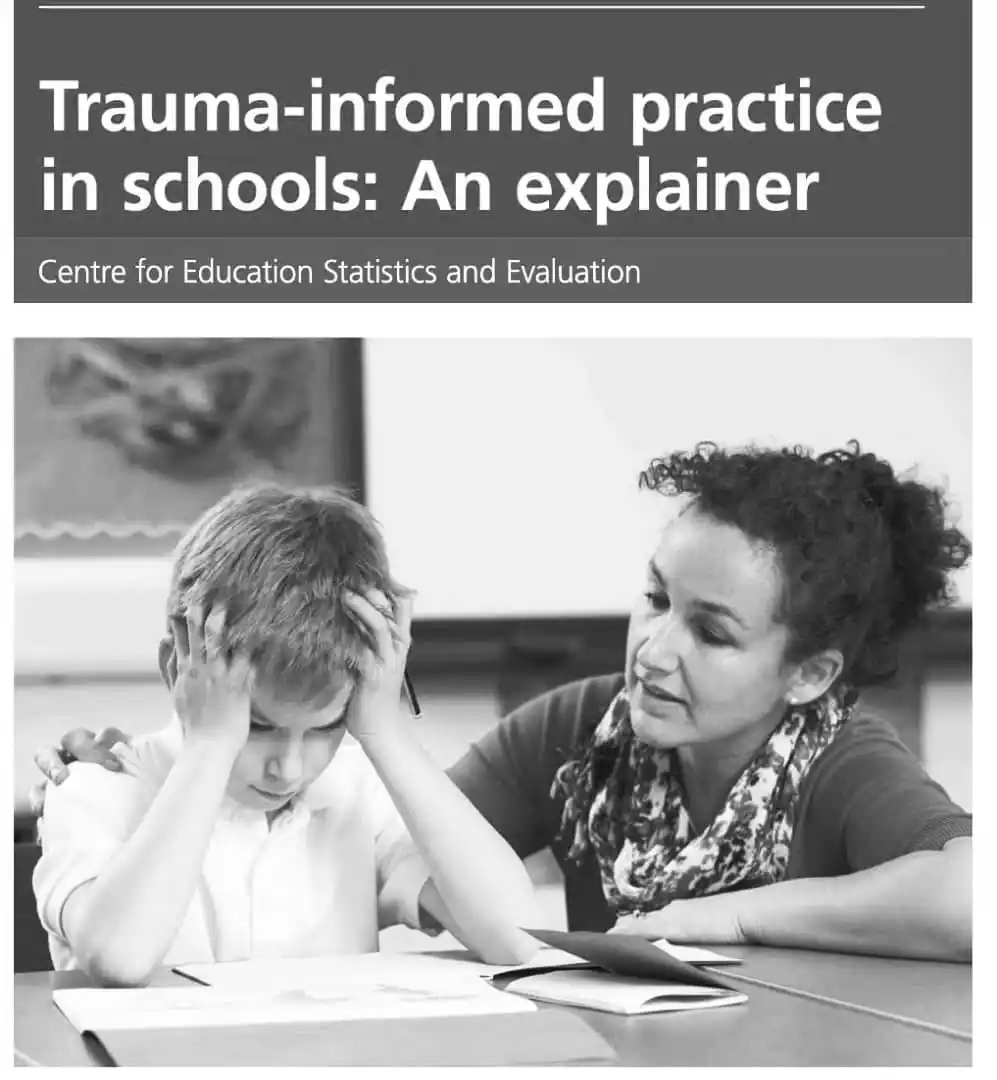

*"What do I do?" || Trauma-informed Support for Children* 1. Create safety 2. Regulate the nervous system 3. Build a connected relationship 4. Support development of coherent narrative 5. Practice ‘power-with’ strategies 6. Build social emotional and resiliency skills 7. Foster post-traumatic growth _See the attached image for details._
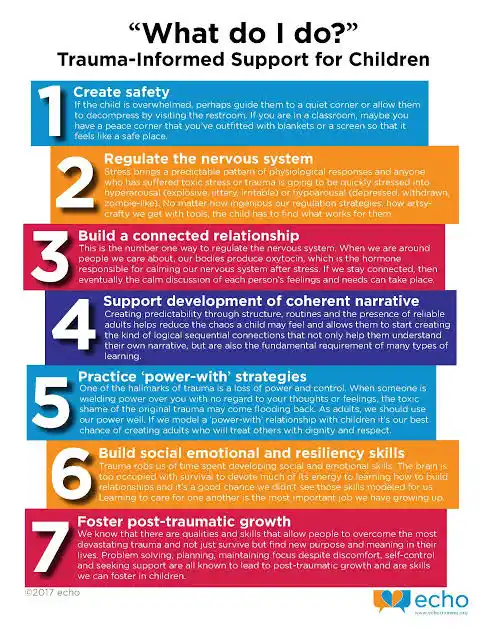


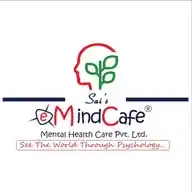


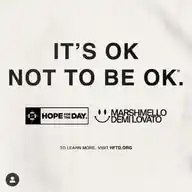
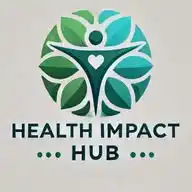

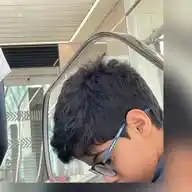

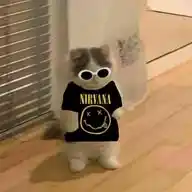

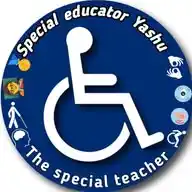
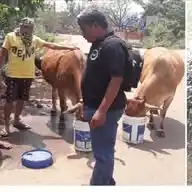
![The Opportunity Youth Forum [OYF] Dr. Zirete Abdallah WhatsApp Channel](https://cdn1.wapeek.io/whatsapp/2025/02/28/14/the-opportunity-youth-forum-oyf-dr-zirete-abdallah-cover_44b266971a0f3b7e5ca0db2ed7748b19.webp)